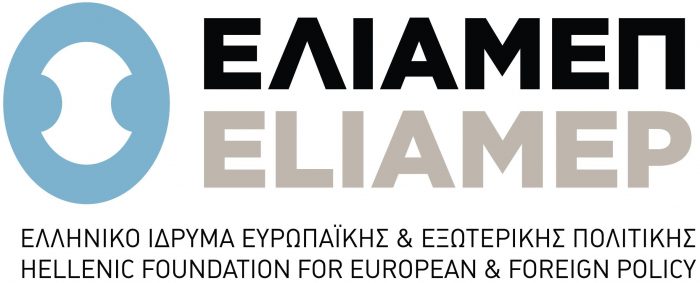The Danish Embassy in Greece in cooperation with ELIAMEP and KANEP (Greek Labour Academy) organised a symposium on Breaking the Waves – Rethinking the Labour Market. The purpose of the conference was on the basis of the succesful Danish labour market model, the so-called flexicurity model, to provide inspiration to the ongoing Greek labour market reform processes as well as to facilitate discussions of the Greek labour market challenges and the possibilities to use the Danish experiences in Greece.
The conference had participation of high level key note speakers from Denmark and Greece. After the plenary session two workshops facilitated in-depth discussions of selected topics.
Around 100 participants representing a broad range of the relevant labour market actors in Greece attended the conference, including the labour unions, parliamentarians, civil servants, organizations, academics, media etc.
Brief summary
After opening remarks by the Danish Ambassador to Greece, Tom Norring , and chairman of the plenary session, Professor Loukas Tsoukalis of ELIAMEP, key note adresses were given by:
– Mr. Jan Petersen , MP, former Spokesman of the Socialdemocratic Party on Labour Market Policy as well as Finance.
– Mr. Dimitris Kontos , Secretary General, Ministry of Labour and Social Protection
– Mr. Stephanos Manos , former minister, independent
– Mr. Henning Gade , Chief Consultant in the Danish Employers’ Confederation (DA)
– Mr. Michalis Kouroutos , Chief Consultant and Secretary of Education of The Labour Academy KANEP
– Mr. Christian Sølyst , Political Consultant in the Danish Employees’ Federation LO
After the key note speeches – in order to facilitate in-depth discussions – the conference was divided into two work-shops under the following headlines:
Work-shop # 1: Dialogue between labour market parties – boxing or dancing relations. Chairman of this work-shop was Professor Vasilis Rapanos, Athens University.
Work-shop # 2: Prerequisites for returning to the labour market – Life long learning. Chairman of this work-shop was Chief Consultant Gert Peuliche, LO.
Both work-shops had lively and open discussions with interventions from a very broad range of participants.
Central Discussion Points and Findings
The discussions during the day touched upon a large number of general as well as sepcific issues. Some of the main findings and discussion points were:
- The Danish flexicurity model has been a great succes and crucial to the very positive economic development in Denmark, including the low rate of unemployment/high level of employment, a long period of strong and stable economic growth and the development of a strong welfare society with a low level of inequality.
- The flexicurity model is characterised by a unique combination of a very high level of social security (to the benefit of the employees) and a very high level of flexibility for the enterprises to reorganise the production, including a very high level of mobility among the employees (to the benefit of the employers). It was a central conclusion that these two main elements of the flexicurity system are mutually dependent.
- The flexicurity model is a product of and has only been possible due to an extensice and equal social dialogue between the labour side and the employers directed at all different aspects concerning the work place from working hours and salary levels to a broad range of issues concerning working conditions.
- Particular attention was given to the Danish experience of a common understanding between the two parties on the labour market of the necessity to invest massively in education during the whole working life on the basis of the principle “It is never to late to learn”.
- The Danish coorporatism requires a high degree of organisation of the members on both sides. Only through a high level of organisation each side gains the power to negotiate fair but good compromises to the benefit of the respective members.
- It was generally agreed that the flexicurity model as such cannot be exported as a final package to Greece (or any other country for that matter). One of the major obstacles to flexicurity in Greece was expected be the lack of social dialogue, the high level of conflict and thus the absence of a consensus mentality on the labour market. Another central factor expected to cause problems for flexicurity was the existence of a big “black” labour market in Greece without regulation and social security.
- However it was also agreed that the Danish experiences and the different elements of the flexicurity model can provide a fruitful basis for inspiration and reflections for Greece in her endeavour to development succesful labour market policies. Many concrete examples of this were given and discussed throug the conference.
- Challenges in terms of increased global competition are felt in Greece as well as in Denmark. Though the national responses might differ there will also be similarities. Flexicurity could potentially inspire Greece with regard to what reforms are necessary in order to prepare for globalisation, e.g. in the area of education.
- As the final statement on the conference the Danish Ambassador to Greece proposed to consider how the good and constructive cooperation – on the flexicurity conference as well as in general – between the Danish Embassy and its’ Greek partners could be further developed in the future to the benefit of both sides – within labour market issues as well as other areas.See the programme and the List of participants of the conference.




